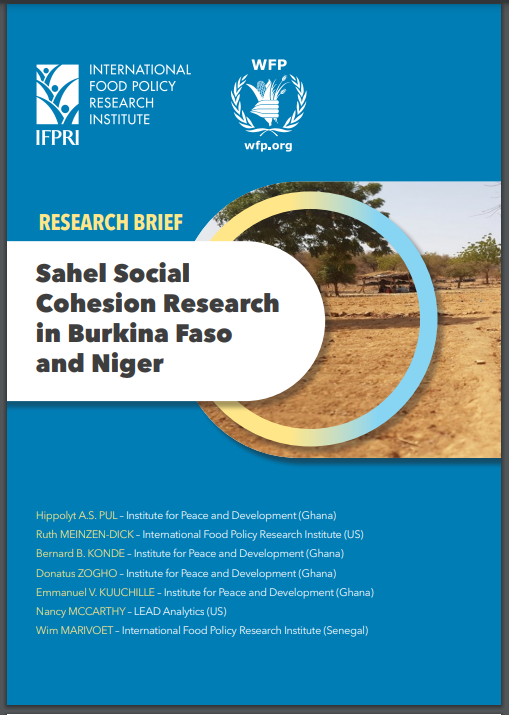
Sahel Social Cohesion Research in Burkina Faso and Niger: Research Brief
The World Food Programme (WFP) supports communities to mitigate the impact of and build resilience to natural and human-made shocks and stressors that contribute to food insecurity and destabilize people’s livelihoods. WFP’s interventions, therefore, aim to equip communities with the knowledge, skills, and tools to avert or mitigate the impact of cyclical natural events such as droughts and floods through asset and capacity building in affected communities. In the Sahelian areas of Burkina Faso and Niger (as part of a broader regional program also covering Chad, Mali, and Mauritania), WFP promotes climate-resilient agricultural infrastructure and systems to help address issues of land degradation, deforestation, dwindling pasturelands, and depletion of water sources, which all trigger competition for productive resources and migration of people and livestock into better-resourced areas. The interventions also aim to address the impacts of violent conflict from within and outside communities in the Sahelian belt of the two countries, especially those related to extremist groups operating in the area. Though primarily designed to increase community assets for productive purposes, WFP’s support for the rehabilitation of lands, construction of water-harvesting and retention structures, reforestation and protection of farmlands and pastures, and soil fertility improvement interventions also aims to increase the availability of, reduce intergroup competition for, and ensure equitable access to these resources. In this way, WFP hopes to minimise conflicts over community resources.
Participatory and collaborative processes for mobilizing and engaging communities should also contribute to increased dialogue within and between different communities and promote peaceful coexistence among other groups. In particular, the requirement of collaborative approaches to the development of communal assets is intended to create spaces of encounter and dialogue that could ease tensions, promote equity in the distribution and use of the created assets, and build relationships among various stakeholders and community groups to ensure that actions for resilience building have the support of the government, development partners, and other decision-makers at several administrative levels.
The purpose of this study was to "…investigate and identify the precise programming nuances and conditions under which social cohesion within communities is likely to be strengthened while unintended tensions and new sources of conflict can be avoided" (WFP,2021, ToR, p. 2). Specific lines of inquiry were as follows: How do WFP activities i) increase the availability of and more equitable access to natural resources across socioeconomic and demographic identity lines; ii) facilitate intra- and intercommunity dialogues that improve communal management of natural resources; iii) improve equity in the distribution and use of rehabilitated and created assets; and iv) contribute to the development of good practises that can be replicated in other settings?